University of Pretoria conveys mosquito and malaria messages through culinary creativeness
Ahead of World Mosquito Day, commemorated annually on 20 August, the University of Pretoria Institute for Sustainable Malaria Control (UP ISMC) hosted an innovative safari cocktail experience, aimed at illustrating how something as simple as a cocktail dinner can be used to promote health and enhance awareness about mosquitoes. The meal was created by UP students and staff using ingredients with active compounds that in large quantities may have the potential to repel mosquitoes.
The UP ISMC is a transdisciplinary research entity housed in UP’s Faculty of Health Sciences. The health-awareness cocktail dinner formed part of the third module of its Leadership and Management Training for Impact in Malaria Eradication course, which took place at UP’s Future Africa Campus from 7 to 12 August 2023.
A total of 48 (25 female) course participants from eight SADC countries – Angola, Botswana, Eswatini, Mozambique, Namibia, South Africa, Zambia, and Zimbabwe – took part in the module, with sessions focusing on the science of malaria and malaria elimination. A session on new ways of promoting health and malaria awareness concluded with the novel cocktail dinner.
“Mosquitoes continue to have a devastating impact on global health,” said Dr Taneshka Kruger, Project Manager of the UP ISMC. “On World Mosquito Day we commemorate Sir Ronald Ross, who in 1897 discovered that female mosquitoes from the Anopheles genus actively transmit malaria. The best way to prevent malaria transmission is to ensure that people avoid being bitten by malaria-carrying mosquitoes, and this can be communicated through health promotion and malaria awareness creation.”
The powerful universal language of food
The innovative culinary experience was hosted in collaboration with UP’s Department of Consumer and Food Sciences in the Faculty of Natural and Agricultural Sciences. Two fourth-year BConSci (Food Retail Management) students, Azille Neuhoff and Anezka van Schalkwyk, researched and conceptualised the menu together with culinary arts lecturer Dr Hennie Fisher. “This exciting opportunity allowed me to discover more about the food that we consume, and how food can be used to raise awareness about a disease as deadly as malaria,” Neuhoff said.
“What a privilege to bring two different fields of interest together through the use of food”, van Schalkwyk added. The project formed part of the students’ experiential training in industry module. A mix of first- to fourth-year students helped prepare a feast for the senses that could also help repel mosquitoes.
The menu from canapés to dessert
As part of the immersive experience, guests were escorted through three food “stations”, where Dr Kruger provided interesting titbits about mosquitoes and the potential repellence of the foodstuff used in the menu.
Arrivals canapé:
- Parma ham with fresh grapefruit compote on crostini (beetroot vegetarian version)
- Smoked trout and carrot sushi
- Virgin Bloody Mary
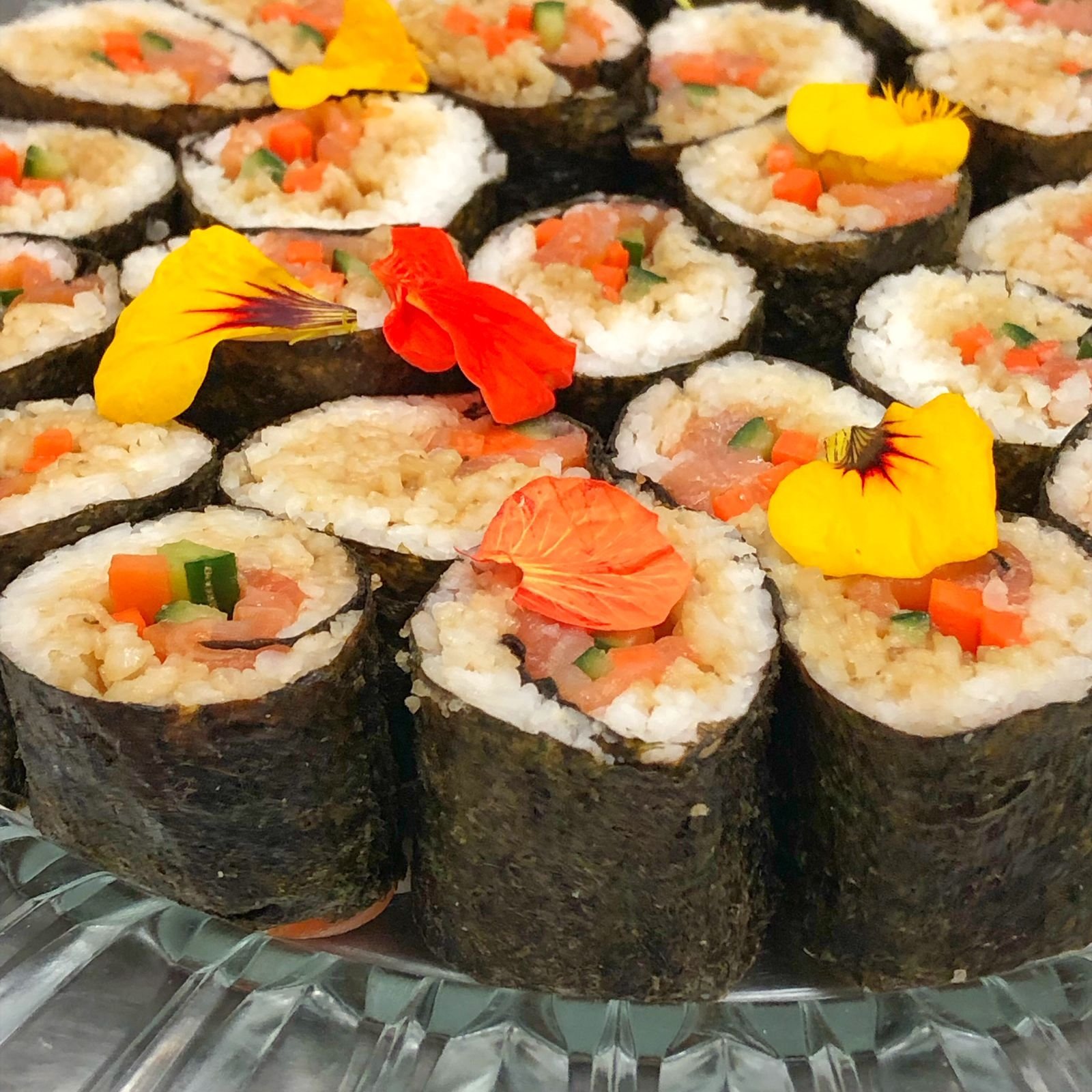 |
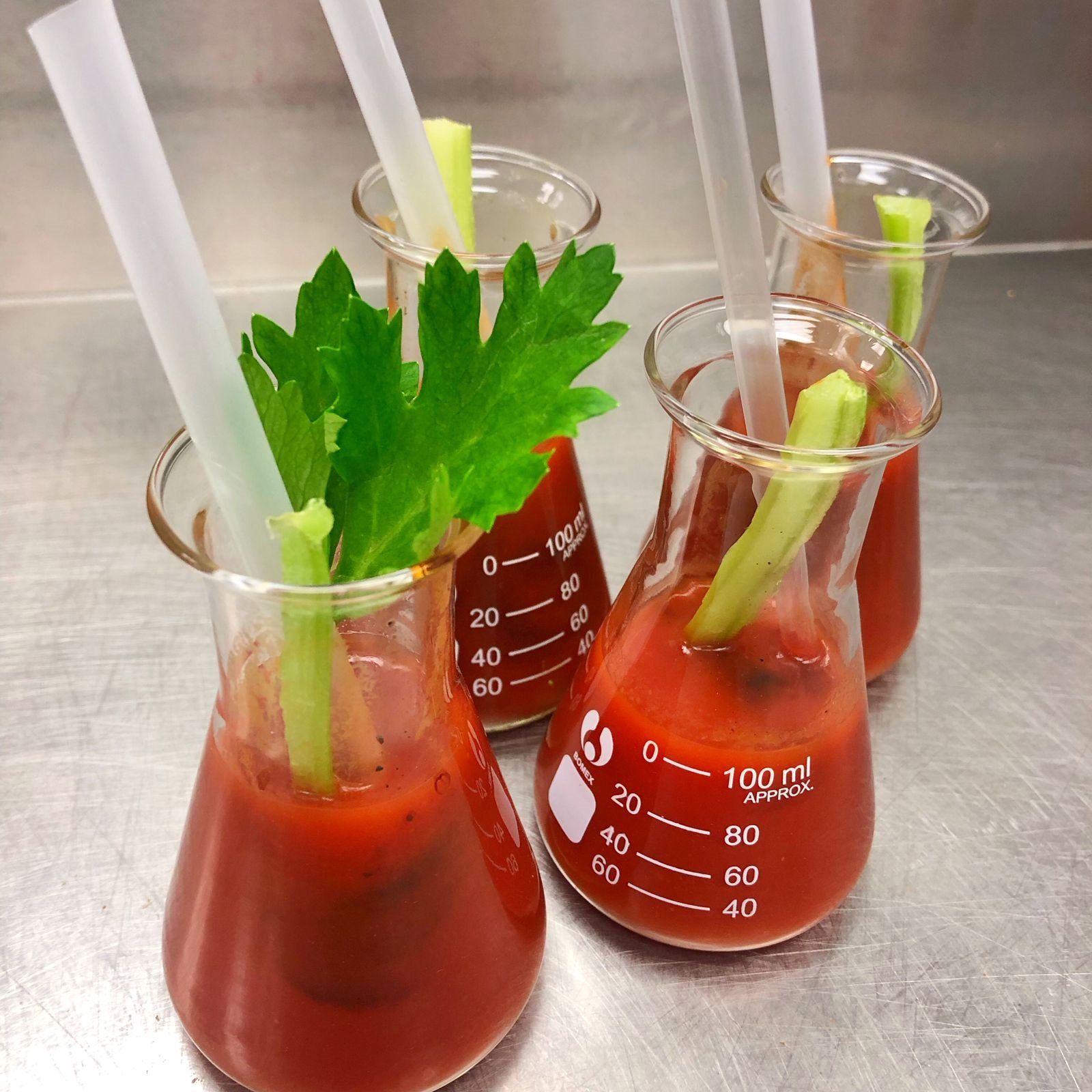 |
 |
The first station was positioned by the lemon orchard a few metres from Future Africa’s entrance, where paraffin lanterns, fairy lights, and the light perfume of lemons hanging in the air welcomed the guests.
As Dr Kruger explained, research suggests that certain compounds present in citrus oil, such as limonoids and terpenes, found in citrus fruit peels, possess natural insect-repelling properties. Seaweed (nori in the sushi) itself is not commonly used as a mosquito repellent. However, certain types of seaweed extracts or compounds derived from seaweed may have properties that can be used in mosquito-repellent products. The tomato in the Bloody Mary contains thiamine (Vitamin B1), which has been touted as a systemic insect repellent since 1943, and denounced as an ineffective placebo for just as long.
Main course:
- Lentil, sugar bean, tomato, garlic, onion, chilli and apple cider vinegar stew with steamed rosemary dombolo
- Homemade ginger beer (with fresh ginger)
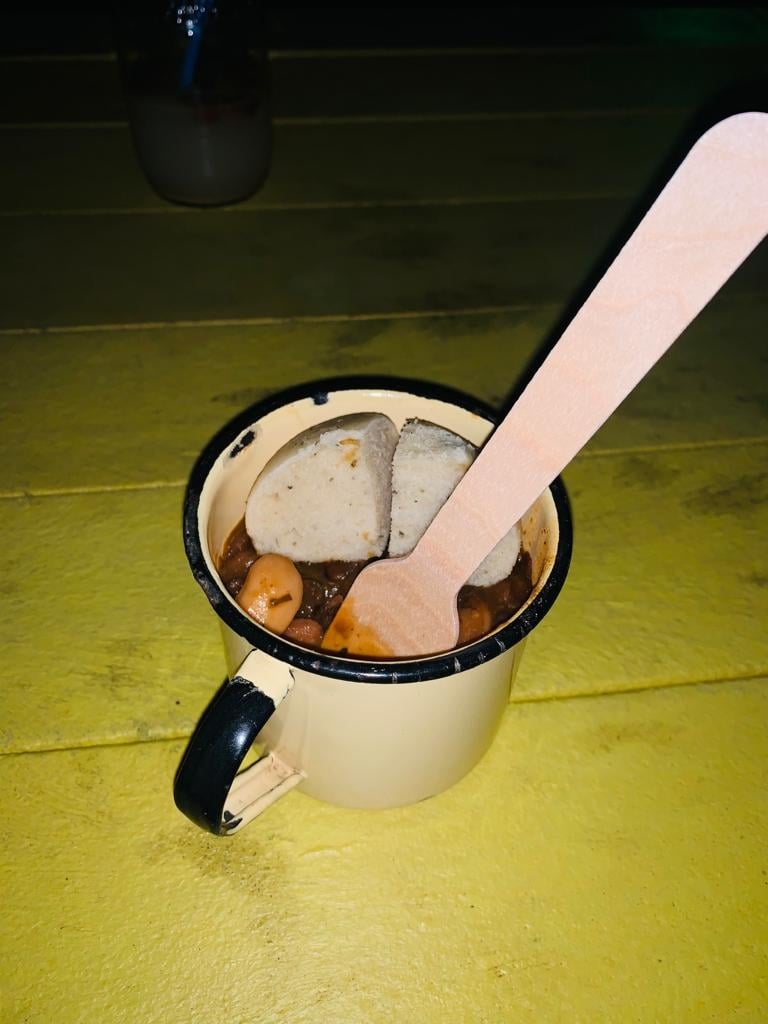 |
 |
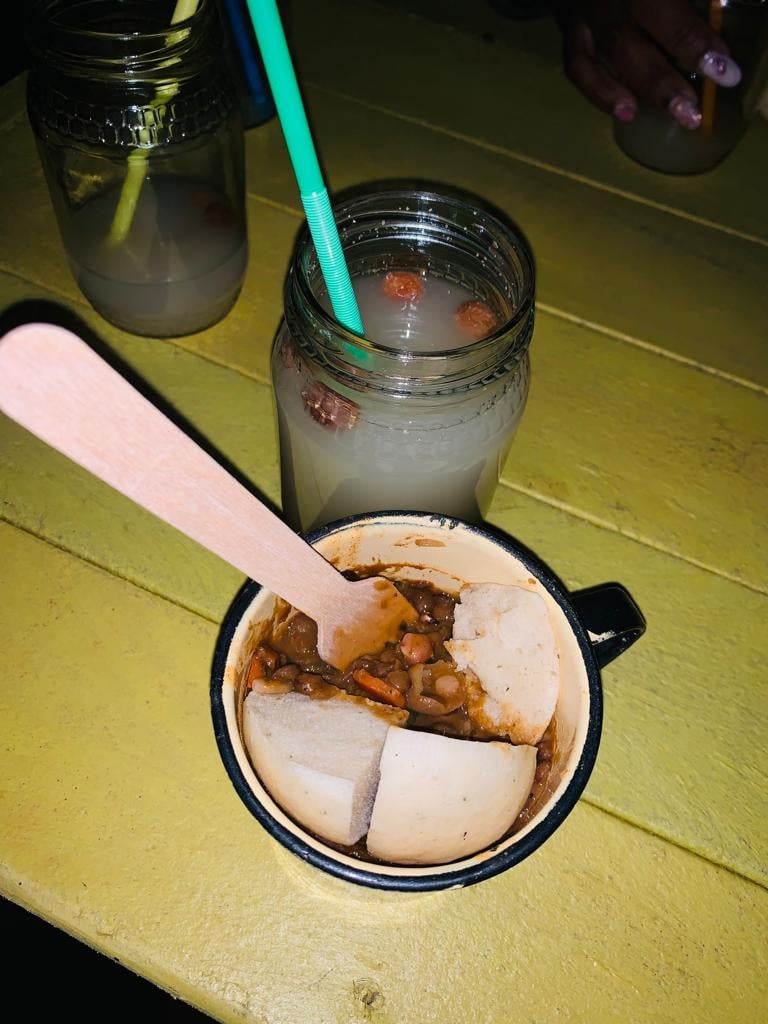 |
Guests then congregated by Future Africa’s large pond, where outdoor heaters were used to break the August-evening chill. While water itself is not a direct cause of malaria, stagnant water serves as a breeding ground for the mosquitoes that transmit the disease, providing ideal conditions for laying their eggs and completing their life cycle.
Guests feasted on delicious stew, while homemade ginger beer quenched their thirst. Tomatoes, beans, and lentils are rich in thiamine and are said to release a smell that repels mosquitoes and other bugs. Garlic, onions, and apple cider vinegar, when consumed, are said to change the way you smell and make you less detectable to mosquitoes. Rosemary’s woody scent also keeps mosquitoes away. Research shows that ginger can repel certain mosquito species.
Dessert:
- Naartjies, strawberries dipped in chocolate, marshmallows, cake-pops, large meringues, jelly babies, jelly beans, blondie squares
- Hot chocolate
 |
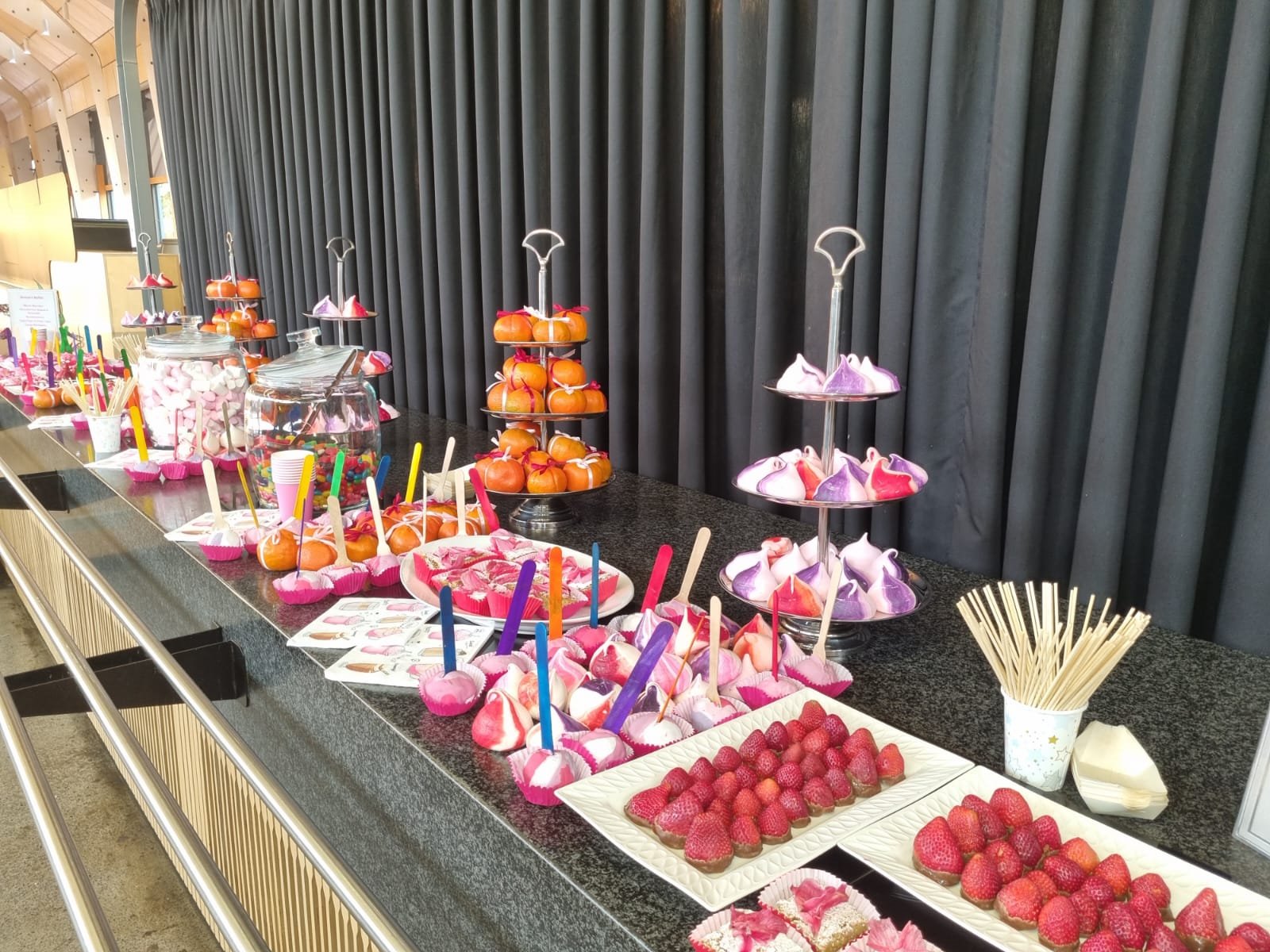 |
 |
|---|
The last station, in Future Africa’s Hub, held tables with sweet treats, purely to celebrate Women’s Day and Month.
Dr Kruger advised that people should take the information provided during the event with a pinch of salt. “Although the natural active ingredients mentioned may have some mosquito-repelling properties, they are unlikely to provide the same level of protection as commercial mosquito repellents – which contain active ingredients like DEET or picaridin – and would probably need to be consumed in large quantities to have any potential impact,” she said. “Products that have been specifically designed and tested for their ability to repel mosquitoes, and contain active ingredients that have been rigorously evaluated for their safety and effectiveness, should be used.”
Currently, UP ISMC researchers are identifying and testing natural active compounds in plants with the potential for further development as malaria parasite-killing drug candidates. But, this innovative, culinary collaboration has created scope for possible future research towards finding more natural repellents to ward off mosquitoes, as part of innovative vector control.

